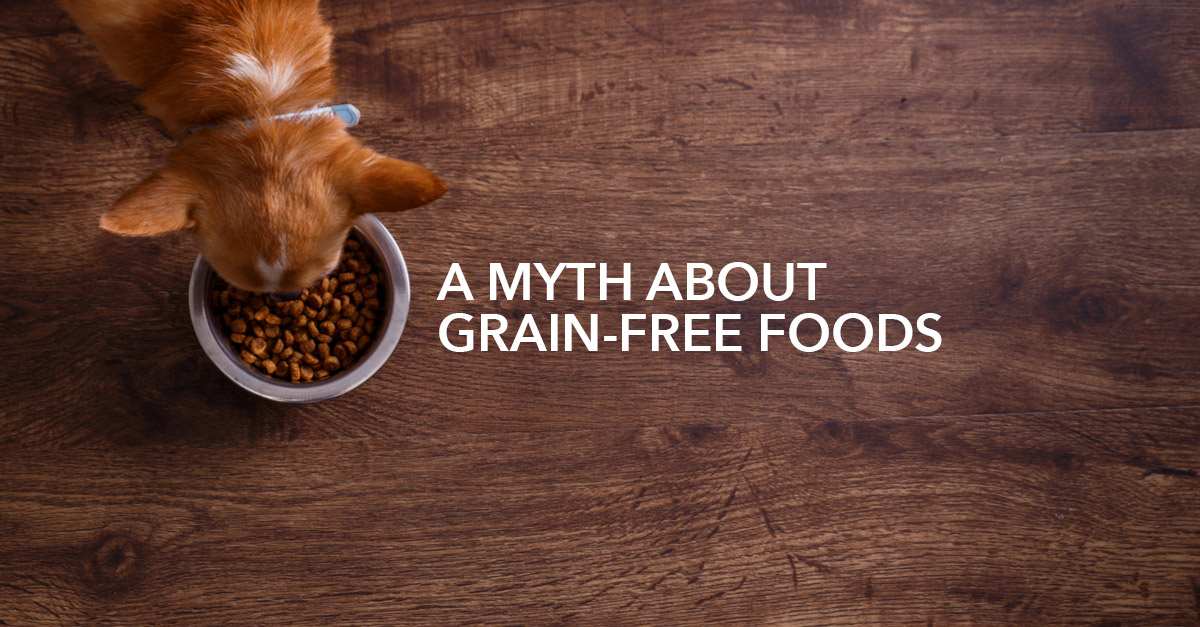
Over the last 15 years, hundreds of thousands of pet parents have switched to “grain-free” foods. Some have switched due to their dog’s intolerance or allergy to grains such as corn or wheat. But others have switched believing that grain-free foods offer a more appropriate diet for dogs who are clearly designed to eat meat.
Unfortunately, many are surprised to learn that grain-free does not mean carbohydrate free, and in fact many foods without grain actually contain more or the same amount of carbs! These grain-free carbs come from sources such as potatoes, peas, and legumes instead of grains.
A Reality Check: Take a Look at Your Dog’s “Grain-Free” Food Label
Take a quick look at the back of your dog’s bag of kibble. You’ll see a guaranteed analysis that looks something like the image below. Notice one surprising omission: it does not say how many carbohydrates are in the food! This is despite the fact that the carbs actually dwarf the protein and fat content.
In fact, it surprises many dog owners that dogs have exactly zero biological need for carbohydrates of any kind. This is why they are not required to be listed on the guaranteed analysis (protein and fat, on the other hand, are vitally important!)
Kibble contains mostly carbohydrates for another important reason: carbs are significantly cheaper than meat.
There’s no getting around it, kibble requires a substantial amount of carbohydrates in order to be made.
So are we suggesting you switch your dog back to a grain filled food? Not exactly.
Unfortunately, every kibble contains a shockingly low amount of protein (often in the 18-25% range). For this reason, for a dog to have a well rounded diet, we believe fresh sources of protein should be added over your dog’s existing food if you feed only kibble.
2 Easy Ways to Boost Your Dog’s Protein on a Budget
Fortunately, you don’t have to completely abandon kibble in order to feed your dog a more biologically appropriate diet. More and more dog parents are beginning to top their dog’s dry food with fresh food, especially freeze dried meat toppers.
Here’s our favorite 2 low cost ways to boost your dog’s protein:
1. Add an Egg or Shredded Chicken Over Your Dog’s Kibble
By simply removing a handful of kibble and replacing it with an a raw or cooked egg or some fresh shredded chicken breast, you can begin to reduce your dog’s carbohydrate intake and replace it with protein. If your dog has a sensitive stomach, be sure to go slow or include a probiotic in their diet to help the transition.
2. Add A Freeze Dried Meat Topper (That Includes Probiotics)
Freeze dried meat toppers have become one of the fastest growing product categories in pet stores, and for good reason. Freeze dried meat preserves the nutrients of protein, offering more benefit to your dog’s body. Kibble on the other hand, destroys much of the value in the high-heat manufacturing process.
Plus, there’s an added benefit of freeze dried topper: dogs go absolutely crazy at meal time! We like the Happy Healthy brand of toppers because it includes chicken or beef, probiotics (helps the transition), blueberries, kale, and carrots for additional nutrition.
Unlike kibble, no heat is used with a freeze dried product, so the meat is as close to nature as possible. The addition of a small amount of fruits and vegetables helps increase your dog’s intake of natural vitamins and valuable phytonutrients that are not found in dry dog food.
When we taste tested this topper in the iHeartDogs offices, 10 out of 10 dogs went CRAZY for it over their regular kibble. The topper coats your dog’s existing kibble, boosting the flavor and the nutrition.
You can learn more about the toppers here.
These statements have not been evaluated by the Food and Drug Administration. This product is not intended to diagnose, treat, cure, or prevent any disease. The information on this website is not intended to replace a one-on-one relationship with a qualified healthcare professional.
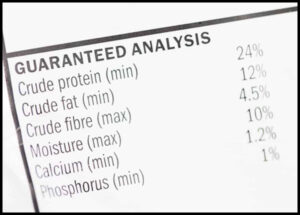
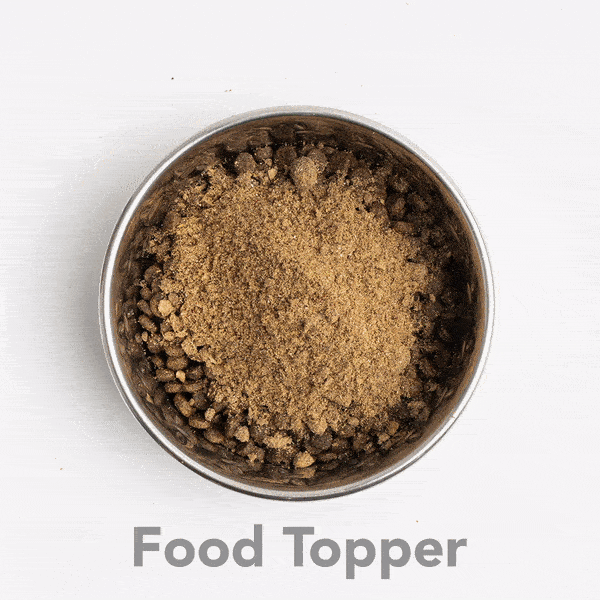
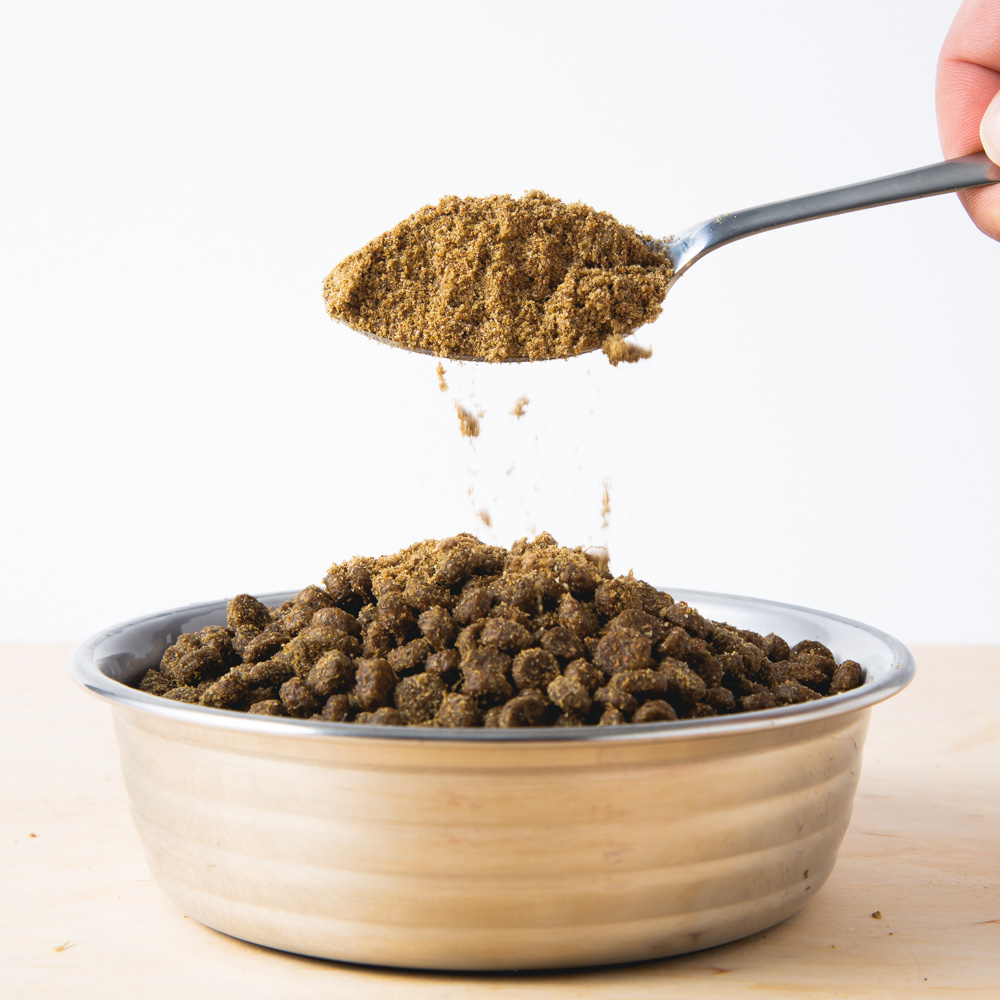
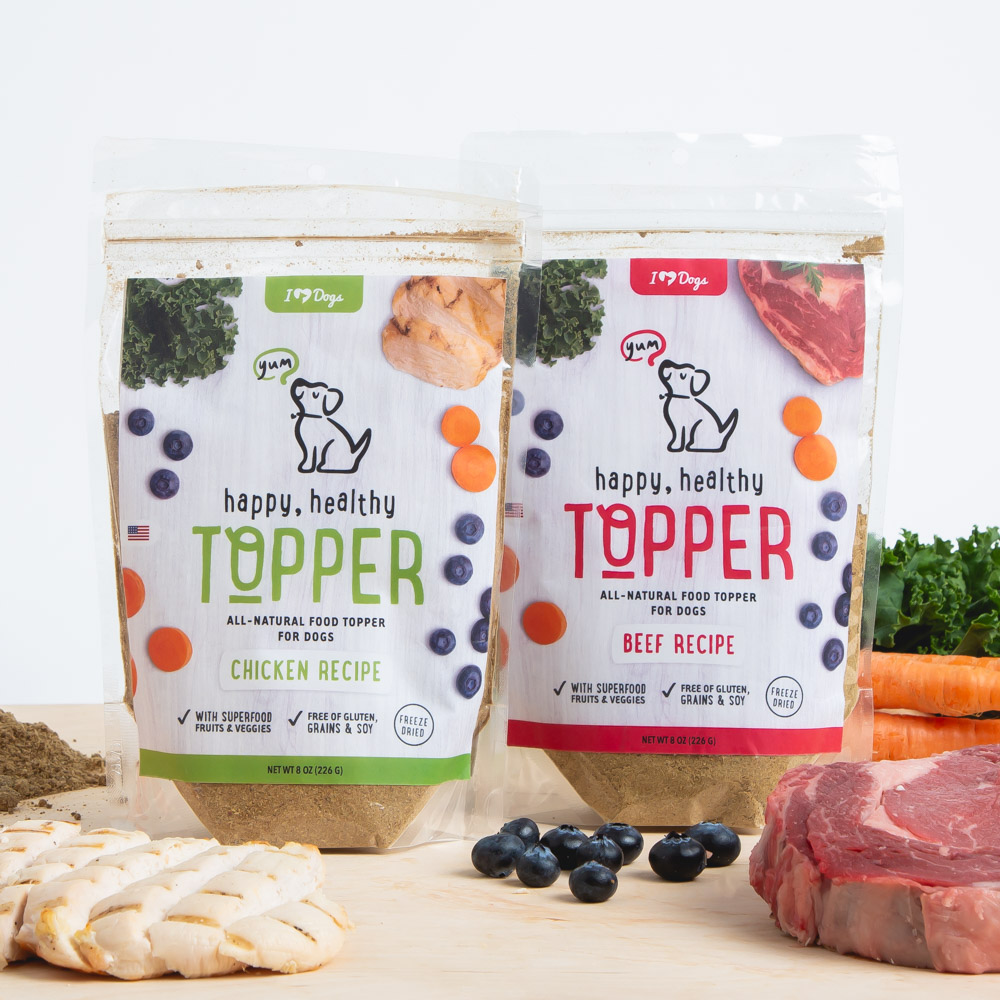
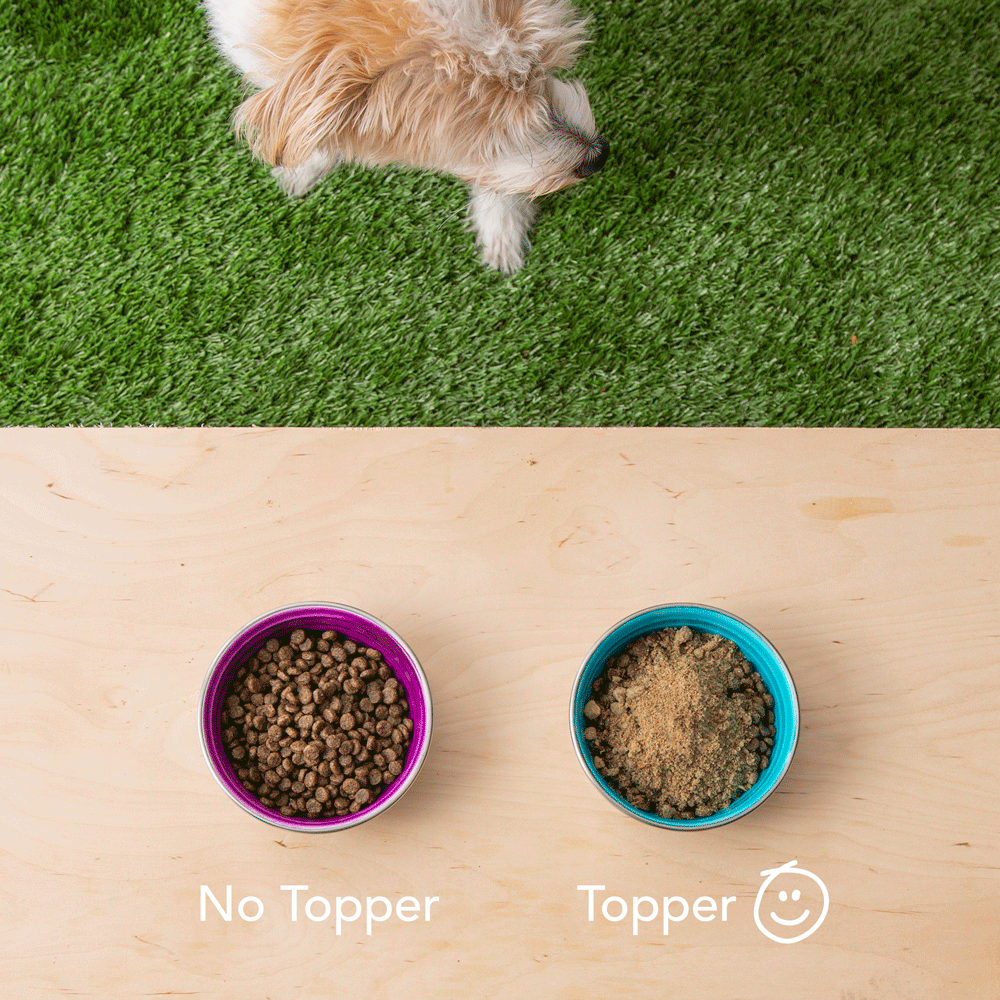
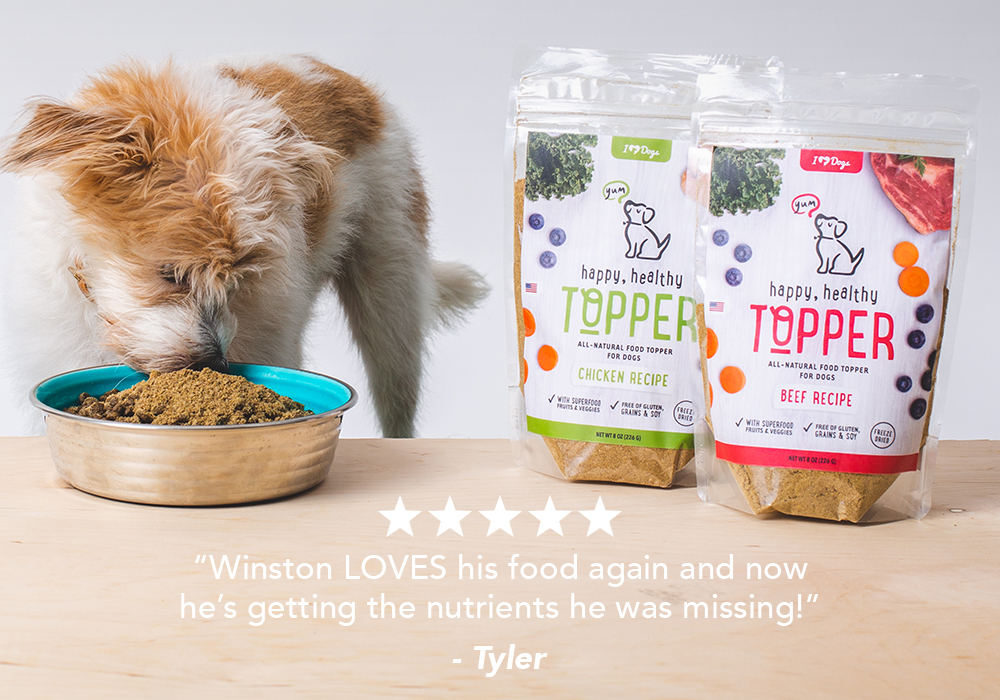
 Toledo, United States.
Toledo, United States.
